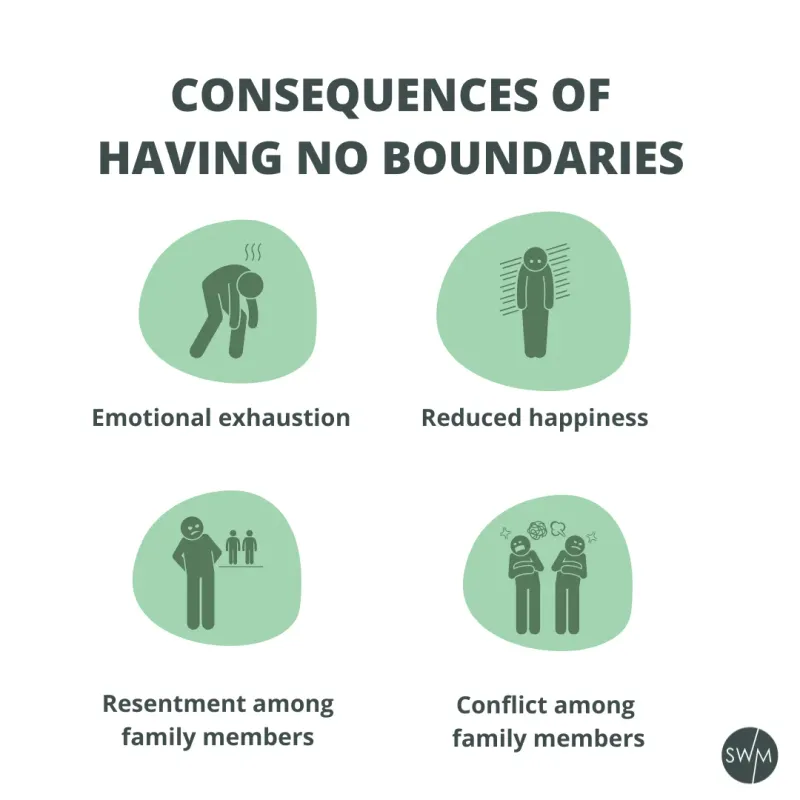Families are supposed to be our safe haven, a place where love and support flourish. However, sometimes certain habits become so ingrained that they’re mistaken for normalcy. These habits can be detrimental to personal growth and mental health. Let’s explore ten toxic family habits that should be recognized and addressed. Acknowledging these behaviors is the first step towards healthier family dynamics. By shedding light on these issues, we can transform our familial relationships into nurturing environments, free from negativity and harm.
1. Silent Treatment

Using silence as a weapon is a common yet destructive habit in many families. The silent treatment can manifest as giving someone the cold shoulder or outright ignoring them. This form of passive aggression creates an atmosphere of tension and anxiety. Instead of promoting open communication, it alienates family members, leaving emotional wounds. Children, in particular, might feel confused and internalize feelings of unworthiness. Open and honest dialogues should replace silence to nurture understanding and empathy. Remember, communication is key in fostering healthy relationships within the family structure.
2. Guilt Tripping

Guilt tripping is often disguised as concern but manipulates emotions to control behavior. Statements like “After all I’ve done for you” or “You’ll regret this when I’m gone” can create emotional turmoil. These tactics foster resentment and dependency rather than genuine connections. Family should be a source of support, not emotional manipulation. Encouraging autonomy and self-respect leads to healthier dynamics, where members feel valued for who they are. It’s vital to distinguish between genuine concern and guilt-inducing comments aimed at control.
3. Favoritism

Favoritism can scar family relationships, leaving deep-seated resentment and rivalry. When one child is consistently preferred over another, it creates an imbalance that affects self-esteem. Siblings may compete for validation, undermining their bond. All children should feel equally loved and appreciated. Parents must recognize unconscious biases and strive for fairness. Celebrating each child’s uniqueness builds confidence and unity. Families thrive on inclusivity and equal support. By fostering a nurturing environment, parents can prevent favoritism from damaging familial ties.
4. Over-Control

Over-controlling behavior is often mistaken for care, yet it stifles independence and breeds rebellion. When parents monitor every move or decision, children struggle to develop autonomy. It’s essential for parents to trust and support their children’s choices. Providing guidance without intrusion allows them to learn from their mistakes. Encouraging independence helps young adults thrive and fosters mutual respect. Families should emphasize empowerment rather than control, creating a nurturing environment where members feel free to grow and explore their individuality.
5. Emotional Invalidation

Emotional invalidation occurs when feelings are dismissed or belittled. Phrases like “You’re overreacting” or “Toughen up” can undermine self-worth. This habit prevents family members from feeling safe to express themselves, damaging emotional bonds. Everyone’s feelings deserve acknowledgment and respect. Families should create a safe space where emotions are valued, fostering trust and understanding. By validating emotions, families can strengthen connections and promote open communication. Recognizing and addressing this toxic habit is crucial for emotional well-being.
6. Neglecting Boundaries

Neglecting personal boundaries is a common toxic habit that erodes trust and respect. Family members who disregard boundaries may overstep, invade privacy, or impose unwanted opinions. Recognizing and respecting boundaries fosters healthier relationships. Families should encourage open discussions about individual needs and preferences. By honoring personal limits, members feel valued and understood. Establishing clear boundaries promotes mutual respect and nurtures a supportive family environment. This understanding strengthens bonds and ensures everyone feels comfortable and secure within the family.
7. Comparisons

Comparisons within families breed resentment and insecurity, damaging self-esteem. When parents compare children to siblings or peers, it creates unnecessary pressure and competition. Each individual is unique and deserves appreciation for their distinct qualities. Families should celebrate achievements without measuring against others. Encouraging personal growth and recognizing individual strengths fosters self-confidence and harmony. By focusing on personal milestones rather than comparisons, families can cultivate an environment of support and acceptance, where everyone feels valued for their unique contributions.
8. Lack of Praise

A lack of positive reinforcement stifles confidence and motivation. Praise is essential for nurturing self-esteem and encouraging growth. When achievements are ignored, family members might feel unappreciated and undervalued. Celebrating successes, no matter how small, fosters a positive environment where everyone feels encouraged. Families should prioritize acknowledging efforts and achievements, reinforcing the value of hard work. By providing meaningful praise, family members can thrive, feeling supported and motivated. Recognizing and celebrating accomplishments is vital for a nurturing family atmosphere.
9. Gaslighting

Gaslighting in families undermines trust and reality. This manipulative tactic involves dismissing or twisting the truth to make someone doubt their perceptions. It creates confusion and erodes self-confidence. Family should be a foundation of trust, not manipulation. Open dialogue and honesty are key to overcoming this toxic behavior. Encouraging transparency and acknowledging feelings helps rebuild trust. Families must strive for authenticity, ensuring everyone feels heard and validated. Addressing gaslighting strengthens connections and promotes a sincere, supportive environment.
10. Blame Shifting

Blame shifting involves deflecting responsibility, a habit that damages trust and accountability. When family members refuse to own up to mistakes, it creates a culture of avoidance and defensiveness. Accepting responsibility is crucial for personal growth and relationship integrity. Families should emphasize accountability and learning from errors. By fostering an environment where mistakes are viewed as learning opportunities, members can grow together. Encouraging honesty and responsibility strengthens family bonds, creating a foundation of trust and mutual respect.

